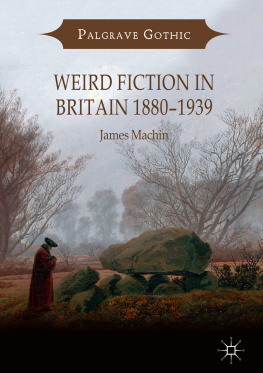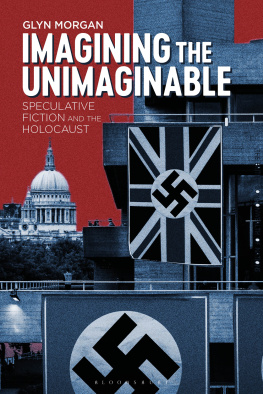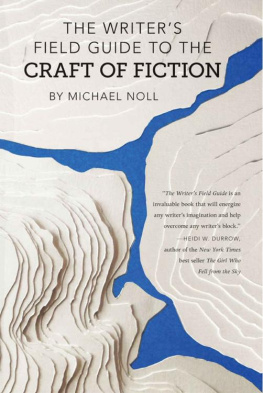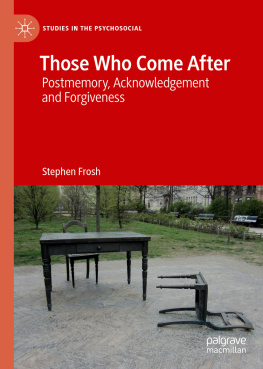Reading behind the lines
Postmemory in contemporary
British war fiction
Natasha Alden
Manchester University Press
Manchester and New York
distributed in the United States exclusively
by Palgrave Macmillan
Copyright Natasha Alden 2014
The right of Natasha Alden to be identified as the author of this work has been asserted by her in accordance with the Copyright, Designs and Patents Act 1988.
Published by Manchester University Press
Oxford Road, Manchester M13 9NR, UK
and Room 400, 175 Fifth Avenue, New York, NY 10010, USA
www.manchesteruniversitypress.co.uk
Distributed in the United States exclusively by
Palgrave Macmillan, 175 Fifth Avenue, New York,
NY 10010, USA
Distributed in Canada exclusively by
UBC Press, University of British Columbia, 2029 West Mall,
Vancouver, BC, Canada V6T 1Z2
British Library Cataloguing-in-Publication Data
A catalogue record for this book is available from the British Library
Library of Congress Cataloging-in-Publication Data applied for
ISBN 978 0 7190 8893 3 hardback
First published 2014
The publisher has no responsibility for the persistence or accuracy of URLs for any external or third-party internet websites referred to in this book, and does not guarantee that any content on such websites is, or will remain, accurate or appropriate.
Typeset
by Action Publishing Technology Ltd, Gloucester
Contents
My primary thanks must go to the English Faculty at Oxford, St Hildas College, Oxford and the Department of English and Creative Writing at Aberystwyth University, for their generous support during the writing of this book.
My thanks must also go to the staff of the English Faculty Library at Oxford; Rhodes House Library, Oxford; Cambridge University Library; St Johns College, Cambridge; the Imperial War Museum; the Harry Ransom Centre; the Wellcome Trust Library; University College London Special Collections; the British Library; the National Library of Wales and the Hugh Owen Library, Aberystwyth.
Particular thanks must go to Pat Barker, Graham Swift, Sarah Waters, Ann Radloff and the late Lucilla Andrews for being so generous with their time in answering my queries about their work.
The book has benefited greatly from the guidance and insight of many colleagues and friends at Oxford and Aberystwyth. I would like to thank Hermione Lee, Laura Marcus, Michael Whitworth, Sue Jones, Margaret Kean, Sally Mapstone, Diane Watt, Chris Butler, and Sarah Prescott in particular, and also the students on my Rewriting the World Wars and Contemporary Queer Fiction modules at Aberystwyth, whose insight, energy and enthusiasm adds much to my professional and intellectual life.
I am deeply grateful to my family and friends for their immense love and support. Finally, I wish to thank my wife, Claire Pickard, for her unfailing love, support and faith in me, as well as for a not inconsiderable amount of patience. This book is for her.
Earlier versions or parts of this book have previously appeared in the publications below. I am grateful to the editors and publishers for permission to reprint this material.
War of Words: Atonement, Metafiction and Plagiarism, in Ian McEwan: Contemporary Critical Perspectives (Continuum Critical Perspectives), ed. Sebastian Groes (London: Continuum, 2008), pp. 5770.
Rewriting Rivers: Ethics and Aesthetics in the Regeneration trilogy, in English 61:233, pp. 17896.
Possibility, Pleasure and Peril: The Night Watch as a Very Literary History, in Sarah Waters: Contemporary Critical Perspectives (Contemporary Critical Perspectives), ed. Kaye Mitchell (London: Bloomsbury, 2013), pp. 7083.
Flickering at the edge of my childhood: postmemory, history, story
Andrew Greigs 2000 novel, That Summer, set between June and October 1940, begins thus:
To the vanishing generation
FIRSTWORD
Above my bed, when I was young, the Airfix kits, the Hurricane, Spitfire, Messerschmitt, spun on their threads in the draught.
One by one they will return, throttling down over perimeter wires of forgotten airfields, then taxi up to abandoned huts. Down the bramble-choked lane come the women and men on bicycles, others on foot, the sound of their voices light and drifting as a summer swarm as they pass through the rusting gates, waving to the CO gliding by in his Lagonda.
The pilots jump down from their planes, knees bending as they hit the ground... Some wave, some call, but their voices are so light they are borne away on the summer breeze. A faint rain is starting to fall and clings, shimmering, to their grey-blue uniforms.
The two groups meet and mingle. Handshakes and pats on the back. A hug and a light kiss on the cheek, postponed for sixty years... Others look around in the rain at the rutted grass, the cracked concrete where the youth of the town race motorbikes and go-karts at weekends, the husks of Nissen huts. The control tower still stands though its windows are blank, the aerials bent and rusting...
Nearly all smoke. They pass cigarettes between them like benedictions, like tokens of belonging. After all, they need take no heed of health warnings, even if there were any on the packets they slip from breast pockets...
They talk in small groups. The pilots gesture with their hands, showing how it happened. They argue still over numbers and formations. One shows with the side of his hand dropping earthwards how he had peeled away, then steadied and came up behind his other hand, flying level. Then both start to shake. The others nod and laugh, quiet but persistent as memory...
There are some radio telephone signals from that summer pilots taking directions from the women who controlled them from the ground, or screaming at each other to get in formation that have become trapped between the ground and the Heaviside layer. They bounce back and forward like tennis balls in some endless rally, for they dont decay. Once in a while a radio ham, idly skimming the airwaves late at night, will suddenly be listening to men and women controlling, flying, singing, cursing, dying. All present in the headphones though they are long gone.
And among the few trees that are left beyond the rusting perimeter fence, there is a trunk with large distorted letters bearing a name and a date. It was carved by the other one, the lanky tired one who stands half in, half out the bedroom window of a house in the post-war estate, his tan boots sunk a foot below the floor. The one with his long back turned, whose right arm hangs slightly crooked, who is always starting to turn round, who never fully turns round, whose face would be so familiar. Who speaks in the dark...
Greigs novel is, in effect, an attempt to speak this generation; to bring back the men and women of this airfield and recreate their experience of five months from the summer to the autumn of 1940. The perspective of the narrator witnessing this revisitation is made clear at the beginning of the quotation: above my bed, when I was young, the Airfix kits, the Hurricane, Spitfire, Messerschmitt, spun on their threads.our narrator is, but we know that this generation lingers for them. We will not find out their identity until the final page of the novel, either; Greig takes us from this distinctly









